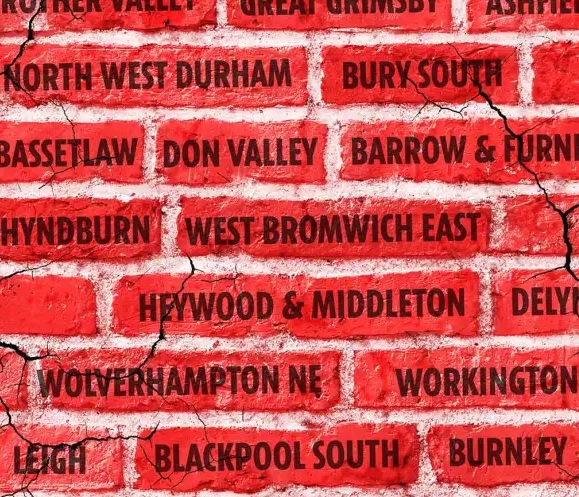We have continually argued that Labour must not junk the radical and transformative environmental policies in its 2017 and 2019 manifestos, and its commitment to a meaningful Green New Deal, as part of a shift to the right.
The article below from Huffington Post shows it does not have to and that so-called Red Wall voters do strongly support environmental policies.
Backing for green jobs, renewable energy and carbon taxes on business defy ‘stereotypes’ of non-metropolitan areas.

Voters in “Red Wall” seats strongly support green policies and defy stereotypes that they aren’t interested in the environment, a new study shows.
Polling by YouGov for the Centre for Towns think tank found that people in villages, communities and small towns are just as likely to say protecting the planet is important to them personally as people in cities.
Some 94% said that the issue was very or fairly important to them, and support for policies to tackle climate change and cut waste have increased markedly in the past five years at the same rate in both towns and cities.
Backing for new “green jobs” and energy efficient infrastructure stands at 79% for big cities, only narrowly ahead of the 75% support in small towns.
Support for more wind and solar power to replace coal, gas and and oil is fractionally higher in small towns (86%) than it is in cities (85%).
And even when given a choice between the options of protecting the environment versus economic growth and creating jobs, support was similar between cities 63%) and small towns (58%).
The report also found high levels of support for a tax on carbon emissions by business, with backing marginally higher in villages and small towns (88%) than in core cities (84%).
Support for limiting the number of times people can fly each year is almost equal in small towns (39%) and cities (40%), with highest backing in rural villages (45%).
However, the one area of real difference between towns and cities was on plans to tax car use, with less metropolitan areas having much less access to public transport.
And on the government’s policy of ending the sale and use of petrol and diesel vehicles by 2030, people in villages, communities and small towns (32%) are less likely to support the idea compared to those in cities (44%).
The study suggests that Boris Johnson will get support electorally in seats he won from Labour in the 2019 election if he pursues green policies that some had assumed would not be popular in working class areas.
Sir David Attenborough is also a unifying figure across different parts of the country and different classes, and support for the conservation charity the National Trust is similar too in all areas.
As the UK prepares to chair the global climate change talks this year, Johnson has already pledged that wind power could power every home by 2030 and has put investment in green jobs like insulation and turbine manufacture at the heart of his “levelling up” agenda.
Analysing British Election Study statistics, the think tank found that around 60% of the public felt that measures to protect the environment had not gone far enough, levels that have nearly doubled since 2015 in all areas.
When asked specifically to name the most important environmental issue ‘climate change’ was the second ranked issue, with 60% of respondents naming it as one of four most important issues, narrowly behind ‘the growing amount of waste we produce’ (on 61%).
“The high level of public concern about waste is notable, and may reflect the aftermath of Sir David Attenborough’s Blue Planet series in 2018, which highlighted the highly damaging environmental impact of plastic pollution,” the report says.
Attenborough is trusted across all areas, often four times more than groups like Extinction Rebellion.
Shadow cabinet minister Lisa Nandy, who co-founded the Centre for Towns, writes in the forward to the report: “Despite frequent suggestions to the contrary, environmentalism is not the preserve of our “woke” cities – it matters to us all.
“We hope this report will be both a call to arms and a wake-up call for those who make stereotypical, wrongheaded assumptions about the views of people in our towns and cities, finding divisions where none exist.”
But Nandy added: “The consensus breaks down in one area: transport. Campaigns that fail to take into account the reality of life in towns where buses are scarce and alternatives are lacking may prove counter-productive. Being radical is no substitute for being relevant.”
The study states that on average, people who live in towns in England tend to be more socially conservative, relatively uncomfortable with social change and are more likely to identify as English, while city-dwellers tend to be more socially liberal on issues such as same-sex marriage or immigration.
The report’s author Will Jennings, Southampton University’s professor of political science, said: “Despite a growing electoral divide between our towns and cities, there are many areas of consensus on environmental issues and signs that the divide between voters on green issues may be shrinking.”
* The survey of 1,721 UK adults was conducted online by YouGov between 25th and 29th June 2020.





